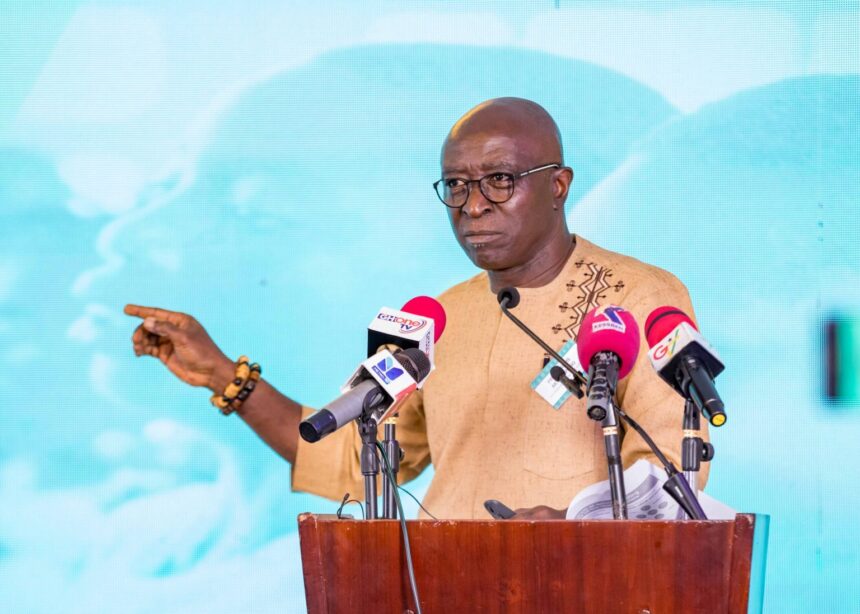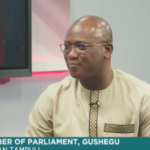Distinguished Ghanaian educationist and global thought leader, Professor Kwame Akyeampong, has observed that Africa must rethink the way education is conceived, delivered, and evaluated on the continent, describing the persistent “learning crisis” as a moral crisis and a global social injustice.
He observed while giving an overview during the launch of his latest book, co-authored with Dr. Sean Higgins, titled “Reconceptualizing the Learning Crisis in Africa: Multi-dimensional Pedagogies of Accelerated Learning Programs,” at the Kempinski Hotel Gold Coast City, Accra, on Wednesday, October 22, 2025.
The Professor of International Education and Development and Founding Director of the Centre for the Study of Global Development at the Open University (UK) said the book was designed to provoke deep reflection and debate on how African education can become more inclusive, relevant, and transformative.
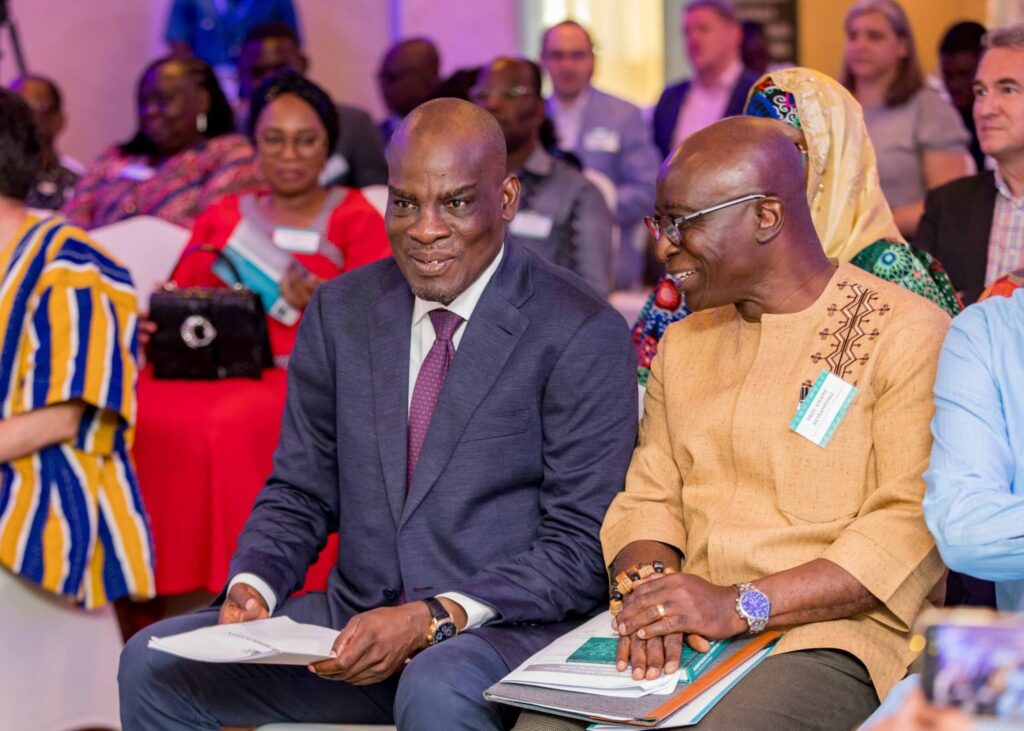
“It is a great honour to have you all here at the launch of this book by myself and Dr. Sean Higgins. I will provide an overview of the issues the book addresses, and hopefully this will begin a debate and discussion that will help take these issues forward,” he said.
He noted that the book identifies the learning crisis as a broken promise of quality education for all — a problem that persists despite global education commitments dating back to the Jomtien Conference and the Millennium Development Goals (MDGs).
“We all know about Jomtien where the Education For All agenda was established. Fifteen years after that, we moved to the MDGs, but we still had not achieved quality education for all. Then we set new targets for 2015 and now for 2030 — yet all indications show that we may not achieve these goals either.”
Professor Akyeampong described the crisis bluntly: millions of children remain out of school, while many who are in school are not learning. Alarmingly, he observed, Africa is the only region in the world where the number of out-of-school children continues to grow, while elsewhere it is declining.
“The crisis is simple: millions of children are out of school, and many who are in school are not learning. What is even more significant is that, globally, Africa is the only region where the number of out-of-school children is increasing; in all other regions, that number is decreasing,” he added.
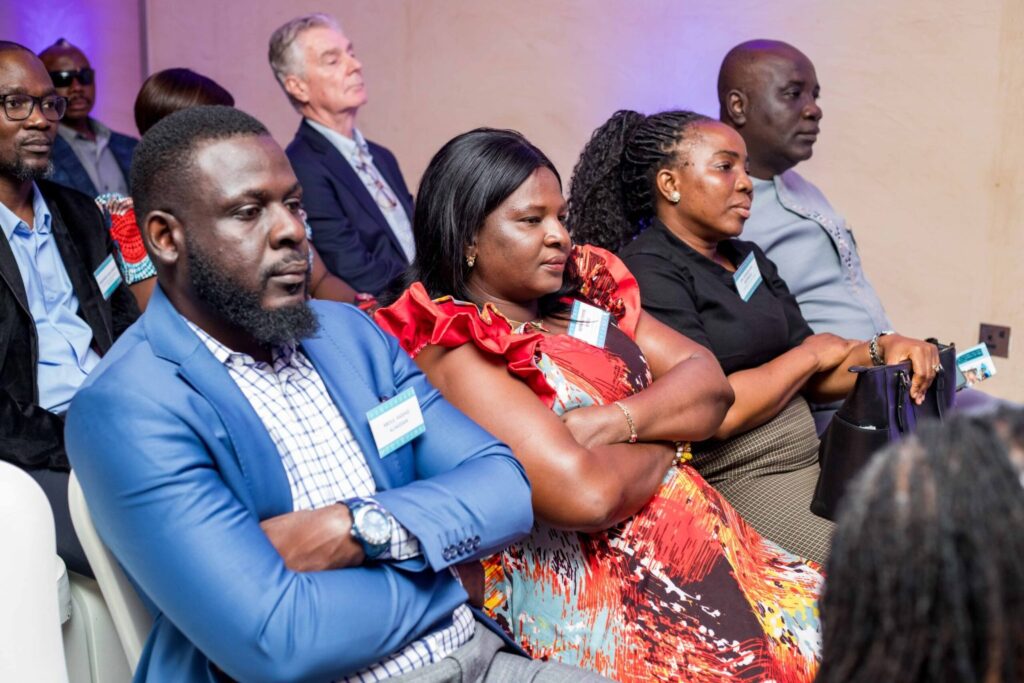
He termed this dual challenge, of exclusion and poor learning outcomes, “a moral crisis” and “a failure to deliver on the universal right to free, quality-based education.”
“The education these children desperately need to transform their lives is being denied them. It is also a failure to deliver on the universal right to free, quality-based education,” he stressed.
Deficit thinking and the African child
The professor challenged the prevailing narrative that blames teachers, children, or communities for educational underperformance, arguing that such a view distorts interventions.
“The problem is not the African child, nor the teacher, nor the community. When education is framed as though the deficit lies with the child or teacher, interventions are shaped in harmful ways,” he said.
He warned that African children are too often depicted as lacking, needy, or inferior to a global northern ideal — a “deficit framing” that erases their agency and cultural identity.
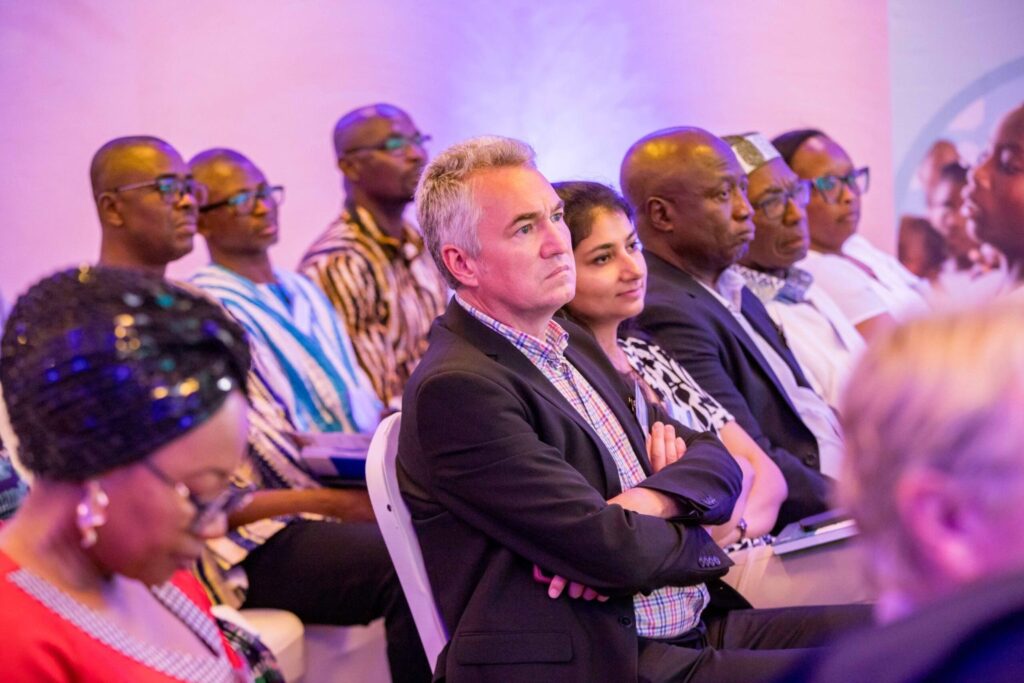
“Their experiences, knowledge, and agency are erased, and they are positioned as decontextualized subjects needing to be saved. This leads to interventions that give agency to outside ‘fixers’ — often international organizations — while denying agency to the child and community. We argue strongly that this deficit framing is wrong and harmful,” he added.
The language of learning
Professor Akyeampong identified the language barrier as a major contributor to poor learning outcomes, criticizing the practice of teaching children in languages they do not speak at home.
“It should never be the case that an African child should go into a classroom in the early years and be taught in a language they do not understand. Research clearly shows that early-grade instruction in the mother tongue increases comprehension, participation, and self-worth,” he indicated.
He lamented that Ghanaian children were once taught in their local languages, as seen in textbooks produced by Basel missionaries over 150 years ago. Still, this heritage has been abandoned — alienating today’s learners.
“When children cannot understand the language of instruction, learning breaks down, and inequalities are reproduced,” he cautioned.
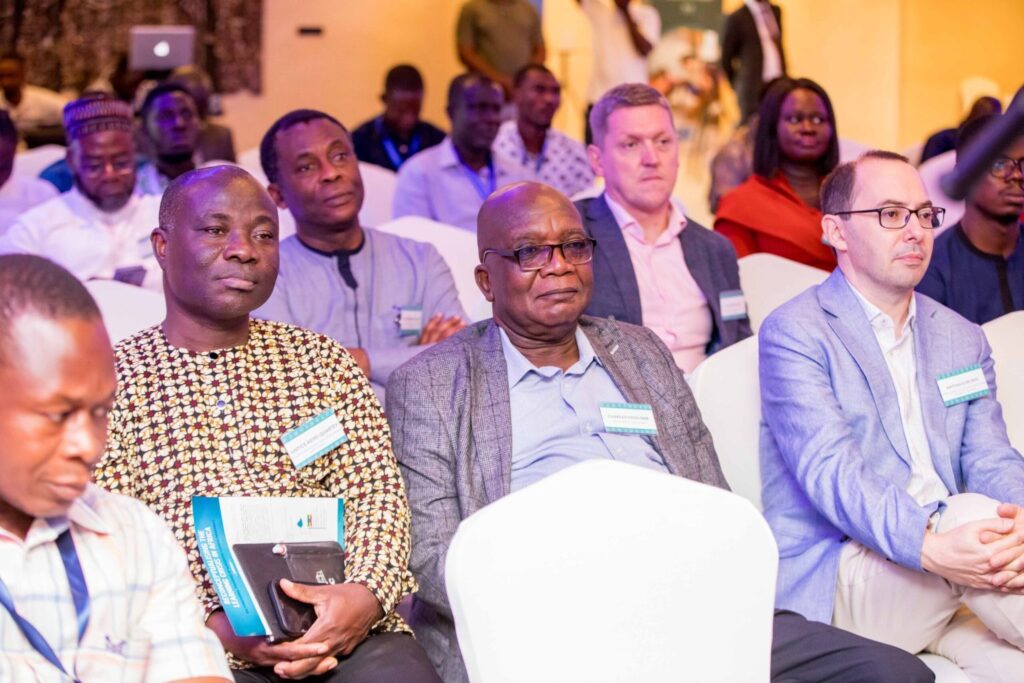
Restoring dignity to African teachers
Professor Akyeampong also criticized the growing trend of giving teachers ready-made materials to implement without modification, a practice he said undermines their professionalism and contextual understanding.
“Teachers are treated as obstacles rather than agents of learning. This does great disservice to education in Africa,” he said.
He emphasized that African teachers bring wisdom and cultural insight to the classroom — assets that should be celebrated, not dismissed.
Homegrown solutions and Ubuntu pedagogy
Drawing lessons from Ghana’s Complementary Basic Education (CBE) and School for Life programmes, which have helped thousands of children acquire literacy within months, Prof. Akyeampong lamented Africa’s failure to celebrate its own success stories.
“We have solutions here in Africa that work, but we do not celebrate or scale them. It is unacceptable that a child spends three years in school and still cannot read and write. That is not the fault of the child — it is our responsibility,” he added.
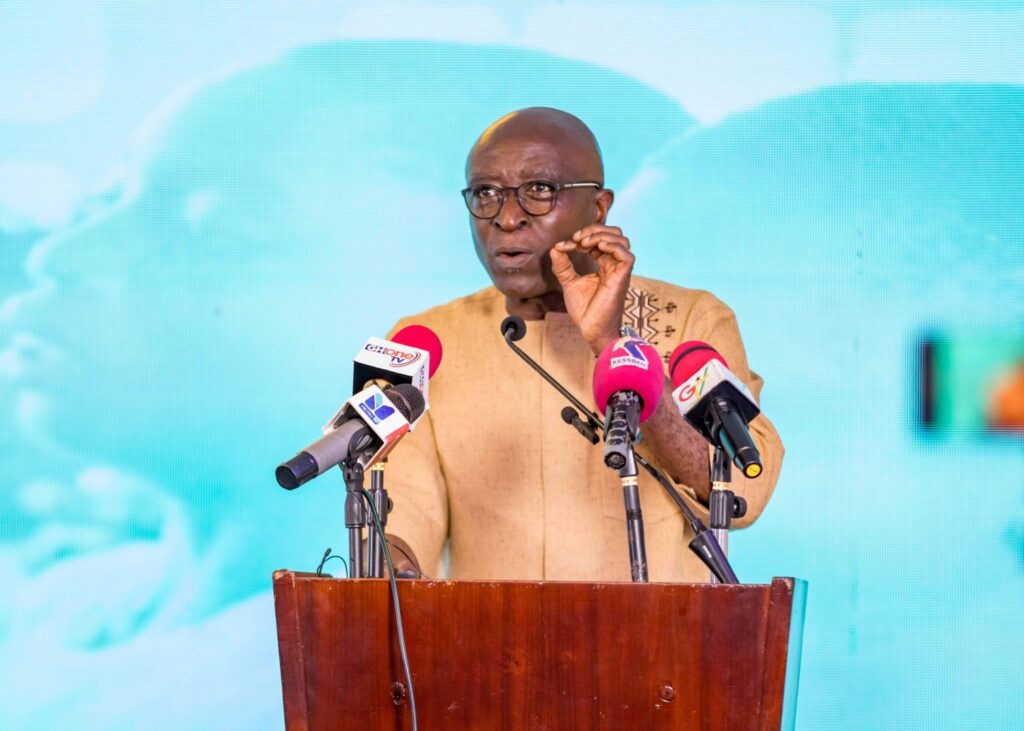
He advocated for Afrocentric pedagogical values rooted in Ubuntu — the African philosophy of shared humanity, and called for communities to reclaim their collective role in ensuring every child’s progress.
“Ubuntu calls us to ensure every child’s progress is our shared responsibility. When a child reaches Grade 6, unable to read or write, the entire community has failed that child,” he further noted
Towards a pedagogy of care and compassion
Professor Akyeampong further called for transforming African education systems to center care, compassion, and collectiveness alongside cognitive and emotional development.
“Learning should be connected to children’s natural environments and realities. When materials reflect children’s lived experiences, it ignites interest and deepens understanding,” he added.
He insisted that the science of literacy and learning is not “rocket science,” and urged governments to ensure that no child completes Grade 3 without being able to read and write.
Source: asaaseradio.com

